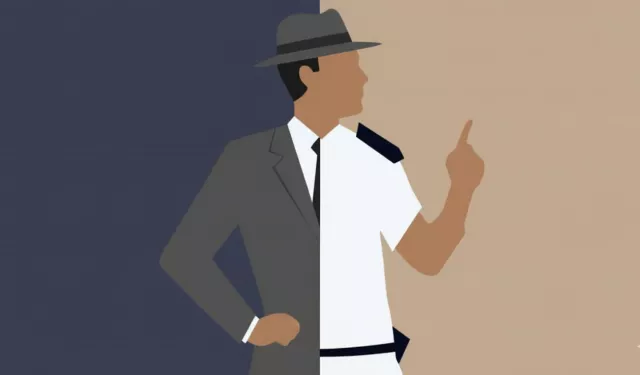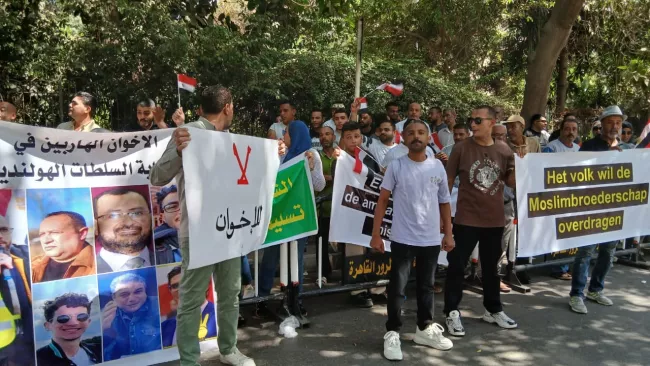
FM Abdelatty, a police sergeant or a diplomat?
I first met Foreign Minister Badr Abdelatty in 2003 while working as Al-Ahram’s Washington correspondent. At the time, he was a young, energetic diplomat at the Egyptian Embassy, one of the country’s most prestigious postings. His primary responsibility was monitoring Congress within the broader framework of the strategic partnership established between Egypt and the US since the 1979 Camp David Accords.
Egypt typically assigns its most capable diplomats to the US, either to the Washington embassy or to the permanent mission at the UN in New York. My initial impression of Abdelatty was that he differed from the usual mold. He spoke with candor and spontaneity, avoiding the polished but empty diplomatic clichés that often substitute for substance.
After 35 years of journalism, much of it spent parsing the language of diplomats from many nations, I came to understand their craft. Diplomats, among all sources, have the ability to speak at length without providing a single detail or newsworthy piece of information. They consider this skill a professional virtue, a sign that they can remain loyal to their government’s line without improvising beyond their foreign minister’s directives.
For that reason, interviews with ambassadors are usually unproductive. As civil servants rather than policymakers, they recycle official talking points, layering them with praise, platitudes, and repeated assurances of “robust bilateral relations”—even when such relations show little evidence of success on the ground.
‘Drag them by the scruff of the neck’
When Abdelatty was appointed foreign minister last year, a section of Egyptians welcomed the choice, seeing him as a relatable “man of the people.” This was especially true because he succeeded Sameh Shoukry, a veteran diplomat associated with careful, conventional phrasing that often alienated Egyptians enraged by Israel’s genocidal war on Palestinians in Gaza over the past two years.
Whether one approves of his style or not, Abdelatty’s long diplomatic service has given him insight into how Western states view freedom of expression and the right to peaceful assembly.
Nothing illustrates Western double standards on human rights more starkly than their muted response to Israel’s war crimes in Gaza. Yet Abdelatty’s own populist response—directing that protesters outside Egyptian embassies and consulates be “dragged by the scruff of their necks” and turned over to local police as criminals—seriously backfired. A clear case of the cure being worse than the disease.
The foreign minister surely knows that in Western democracies, protest is legally permitted in front of government buildings, parliaments, and embassies alike. Authorities there do not confine demonstrations to one designated public park, like the Andalus Gardens in Cairo, nor do they rely on urgent matter courts to ban them, which is typical in our one-of-a-kind country.
Ambassadors interpreted Abdelatty’s orders as directives from the highest levels of government. But they undercut Egypt’s diplomatic credibility abroad, clashing directly with his responsibility as the state’s chief diplomat.
Instead of containing the situation with reason and restraint, Abdelatty created opportunities for demonstrators to film confrontations and circulate them widely on social media. The execution of these orders reached a low point outside Egypt’s mission in New York near the UN, where a 15‑year‑old child was detained.
It is hard to believe Abdelatty did not know that he could have taken a more effective and legal route: formally notifying host governments of planned assaults on embassies, such as attempts to force gates shut. Such acts would qualify as vandalism and trespass under local laws, warranting action without Egypt’s intervention.
A needless scandal
The role of embassy security is not to physically confront protesters. Egypt itself would not tolerate foreign embassy guards spilling into the street to attack Egyptian citizens. Forgetting for a moment that we are not permitted to demonstrate in the first place, such an act would be a blatant violation of sovereignty.
In fact, when embassies in Cairo feel threatened, they are legally required to request protection from Egyptian authorities. Even if local protection is lacking, embassy security does not intervene directly. Precedents abound: in 2012, Egyptian protesters breached the US Embassy walls, tore down its flag, and set it alight, clashing with Egyptian security for days. Furthermore, protesters stormed the Israeli Embassy. In neither case did embassy guards themselves engage the demonstrators.
During the current crisis, however, this dedicated and patriotic minister expanded Egyptian security staff abroad and even threatened to scale back protection for foreign embassies in Cairo. In a symbolic slap on the wrist, Egypt permitted a one‑off “spontaneous” protest, outside the Dutch Embassy in Zamalek—an extraordinary exception in a country where demonstrations are normally crushed before they start.
Abdelatty accused countries that “permitted” protests near Egyptian embassies of participating in efforts to damage Egypt’s reputation. Yet he knows that in democratic systems, the executive branch lacks the authority to ban demonstrations.
To make matters worse, his team attempted to orchestrate counter-protests by regime supporters abroad, leading to shouting matches with critics who falsely accused Egypt of starving Gaza.
Instead of repairing Egypt’s image, these moves amplified the scandal on global social media. As a result, international coverage shifted away from Egypt’s official position on the genocidal war on Gaza to the government’s apparent inability to withstand even small‑scale demonstrations abroad. This mirrored the state’s domestic policies, which allow no space for public protest or dissent.
Some regime loyalists may admire Abdelatty’s unorthodox, man-of-the-people style and his eagerness to demonstrate loyalty to the leadership—an eagerness evident since his time as ambassador to Germany.
But what is certain is that the minister performs his duties wearing two hats; that of a diplomat and that of a police sergeant. This dual approach leads us to say, 'Watch out for Abdelatty,' who seems to have ambitions to assume a high-ranking position in the Ministry of Interior after he finishes his term as Egypt's undiplomatic Foreign Minister.

